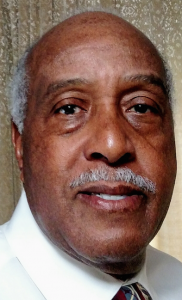Sharing life’s lessons
Published 12:07 pm Wednesday, March 13, 2019
George E. Smith isn’t the kind of man who would end up in witness protection, and that’s a good thing – because he couldn’t be anonymous if he wanted to be.
He recalls the time he was in a mall and was spotted by a former student. It even happened when he was in Washington, D.C.; after that, he took the lesson.
“I can go to D.C. walking down the street or in a mall and somebody will say, ‘Hello, Mr. Smith,’” he said. “I can’t do anything without one of my kids seeing me.”
Not that it bothers him. It doesn’t. It is a testament to his 36 years in education and his contribution to the region – and a life that continues to be enjoyed and focused on giving to his community.
A Charlotte County native, Smith graduated from then-all black Central High School in 1968 and moved to Baltimore, Maryland, for a year to work with his uncle as a metallurgist.
He returned to Virginia in 1970.
“I was (back) home one week and I went to the mailbox and said, ‘Oh, I got a letter.’”
That letter was his draft notice. At the time, the Vietnam War was still on, and Smith faced the prospect of being sent.
After his final training at Ft. Campbell, Kentucky, as service assignments were made, Smith stood anxiously. He heard some being assigned to Vietnam. The man beside him … Hawaii; Smith … Korea. The rest of the men after him were assigned to Vietnam.
“Tears rolled down my eyes,” he said.
Smith served one year in Korea.
Once out of the military, Smith found himself forced to go to college. Well, sort of. His wife, Mary M. Smith, was a Saint Paul’s College graduate, and he decided it was best to keep up and go to college as well. Smith, however, went to Virginia Commonwealth University. The couple would both earn master’s degrees from Longwood University.
The coupled married June 23, 1973. They have two children, Christopher and Monica, and four grandchildren.
Smith, 69, would be an art teacher for 12 years at Central High School in the Lunenburg County Public Schools system. Afterward, he would move into administration – alternating between Lunenburg and Nottoway public school systems. He retired as the principal in 2014 from Nottoway Middle School.
And, Smith notes, since his retirement, he hasn’t slowed down.
“Haven’t looked back or slowed down a day,” he says.
For the last 20 years, Smith and his wife have been members of the Blackstone Community Chorus. He’s also a deacon at his church, Galilee Baptist Church in Randolph.
Once retired, he also kept the promise he made to himself, and others to work with The Central High Museum, Inc.
It was Smith who framed and displayed the items, and he who built the three exhibits titled Wall of Slavery, Wall of Struggle, and Wall of Hope – respectively following the story of African-American life in the county from the brutality of the Middle Passage and enslavement, the hardships of life after emancipation and the struggle for education, and the tales of triumph and success.
Housed in the remodeled building once known as the bus shop and the agriculture building, the museum is open for visits from 10 a.m. until 2 p.m. the first and third Saturdays of each month.
The most powerful life experience that impacted his life: three rows of bus seats.
“Those three rows on the bus, one stretching from the front to the back along the rows of windows and the third down the middle aisle. I will never forget that,” he said.
Smith recalls riding the new-to-them bus and discovering chewing gum under the seat, and naively thinking “somebody’s been on our bus.” It was the same outrage he felt when he would sit at a new desk to discover scratch marks and initials. He didn’t realize that the “new” supplies at the black school were hand-me-downs from the white school.
“I was young and ignorant,” he notes.
The educator in him has a few more lessons he wants everyone to take.
One he hopes the museum will convey: that segregation is gone, and it’s not coming back.
“The cat is out of the bag and I don’t think nobody’s going back – black or white,” he said.
The other is that we should take better care of this beautiful earth.
“God has spoken to us about how badly we’re treat our planet, now he’s showing us through dramatic climate change,” Smith said. “My philosophy is we’re living in heaven right here on earth, but we don’t know how to treat it.”




